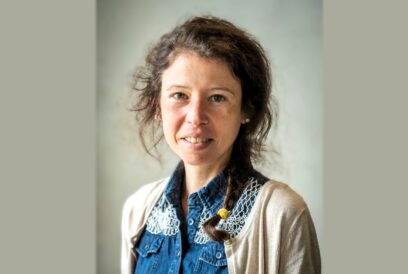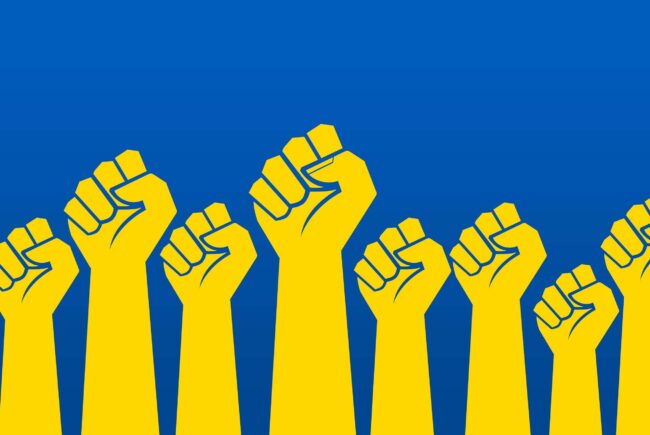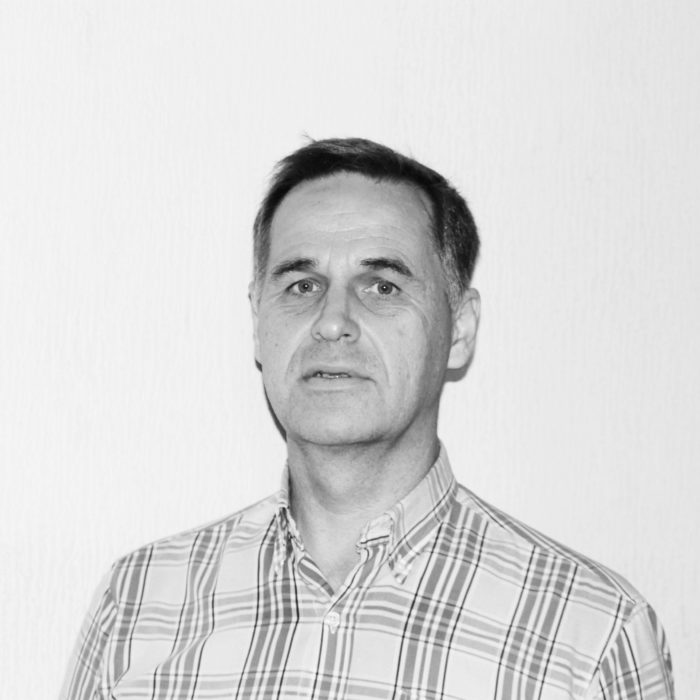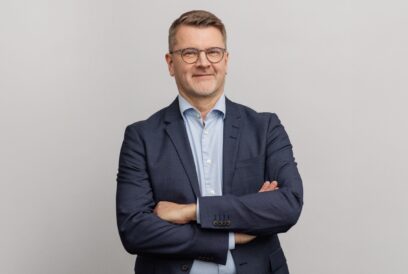

Image credit: Shutterstock
Image credit: Shutterstock
As war is uprooting lives in Ukraine, adult educators have needed to find flexible solutions to offer the right support. We talked to Oleg Smirnov, who works and lives in Kyiv.
In March 2022, soon after Russia invaded Ukraine, we interviewed the Ukrainian adult education professional Oleg Smirnov. He works for the NGO Integration and Development Centre for Information and Research (IDCIR), which focuses on the promotion of innovative approaches to intercultural and peace education.
Oleg Smirnov is also the country director of the German Adult Education Association, DVV International, in Ukraine, and a member of the executive board of EAEA, the European Association for the Education of Adults. He lives in Ukraine’s capital Kyiv.
Unfortunately, the war has not ended – so we talked to Oleg again about the current landscape of Ukrainian adult education, civil society and manifestations of resistance around him.
Oleg continues to live in Ukraine’s capital Kyiv, and says that many of his friends and acquaintances have also returned there. People are now starting to have a real psychological understanding of the fact that the war might yet go on for a long time, he continues.
This interview has been extracted from an email exchange.
What kind of adult education is needed in Ukraine at the moment?
Gradually, the needs of Ukrainians have changed, and education service providers have needed to find flexible solutions to offer the right support. One new priority is the orientation and adaptation of all the internally displaced people in the country – we have courses on effective communication in crises and social cohesion in new communities, for example.
We also focus on providing additional professional skills, so people can find jobs or become self-employed. Recently, several adult education providers have iniated new short-term courses on topics such as sewing and tailoring, hairdressing, guide training, graphic design, accounting and starting your own business.
I think of the optimism of people who left, but hope to return and rebuild their cities shortly.
Several member organisations of the Ukrainian Adult Education Association (UAEA) from the occupied territories managed to leave and move equipment to other regions of Ukraine. The majority of centres are continuing their activities. Psychological support courses and short professional courses for those who have lost their jobs, mainly internally displaced people, are the most popular. Some of them provide support to those who remain in the occupied territories.
One aspect our team at the IDCIR has been focusing on is offering training for teachers: volunteering, psychological and self-recovery skills, for example.
What are the priorities for adult learning and education (ALE) policy right now?
In recent months, there have been some positive actions relating to the recognition of the need and value of ALE for the development of the country and local communities. Lifelong learning (LLL) or ALE appears in many documents that describe the priority areas of development in culture, youth policy, economy and so on. Also, adult education often appears in various drafts of plans for the country’s post-war reconstruction.
Currently, the Ukrainian Adult Education Association is actively lobbying for draft laws in our Parliament, Verkhovna Rada. Both of the draft ALE laws are under consideration in the Education Committee and have already been included in the agenda of the Parliament for the autumn session.

Oleg Smirnov works for the Integration and Development Centre for Information and Research.
In May, Parliament decided that all draft laws considered as European integration – including the ALE laws – should have a reference to the EU acquis. The Verkhovna Rada of Ukraine and the Cabinet of Ministers of Ukraine have developed a procedure for preparing European integration bills.
What kind of support could Europe and Europeans provide to Ukraine?
The obvious importance of military aid aside, the readiness to welcome people fleeing the war is very important.
I think making sure that children can attend school and education is the key, but Ukrainian adults in European countries being able to access educational services is also important. In my mind, “educational services” can mean very simple things – learning how the local authorities, communal services or different institutions work. There is hope that people will return to Ukraine and be able to utilise the experiences and skills they gained abroad.
You mentioned there are several governmental ALE initiaves taking place in Ukraine. Could you highlight a few of those projects?
There are several initiatives by separate governmental bodies aimed at the education of diverse groups of the adult population. This includes displaced people, veterans of military operations, the unemployed and the youth. Unfortunately, so far these are specific initiatives that are not evidence of a systematic approach to the field of adult education.
One example is the IT Generation educational project, a joint initiative of the Ministry for Digital Transformation and the Binance Charity Foundation. It offers free IT courses to any citizen of Ukraine between the ages of 21 and 60 with no previous experience in IT.
The Ministry of Digital Transformation and Ministry of Health, with the support of the World Health Organization, have also created online courses to support mental health. Finally, Filter is a national media literacy project by the Ministry of Culture and Information Policy. It unites the efforts of the state, public organisations and the media community to increase the level of media literacy of Ukrainians.
What does resistance mean to you? How do you see it being manifested around you right now?
Right now, I see resistance as the willingness of the majority of the population to work for victory, to perceive difficult situations with humour, and to quickly find solutions to many complex problems. This means helping and supporting colleagues, friends and everyone who needs support.
When I think of resistance, I think of my colleagues from adult education centres across Ukraine, especially from regions close to the frontline of the war. I think of the optimism of people who left, but hope to return and rebuild their cities shortly.
For example, In Nikopol (Dnipropetrovsk oblast), additional sewing courses were launched during the very first days of the war. Since then, they have been sewing clothes and various items for the defence groups and the military. For the past three months, since the middle of July, Nikopol has been shelled almost 24 hours a day by artillery. The city infrastructure is almost completely destroyed.
The adult education centre worked there almost until the middle of September. Now it has temporarily left, but all the time they are talking about returning and continuing its activities.
Author







